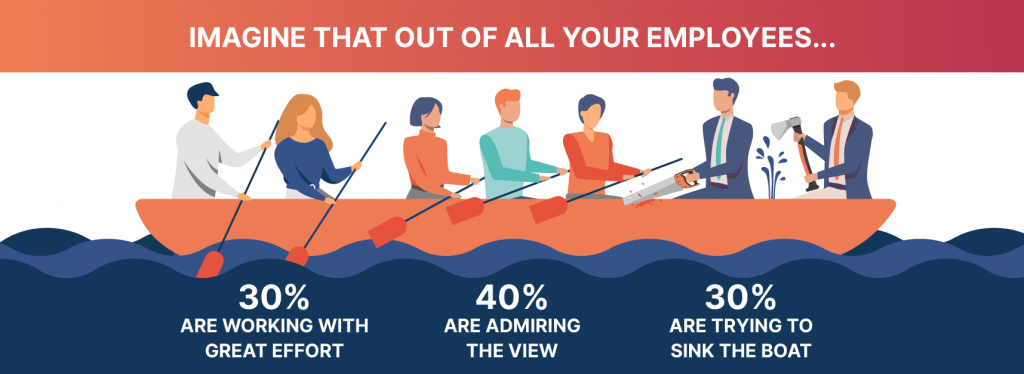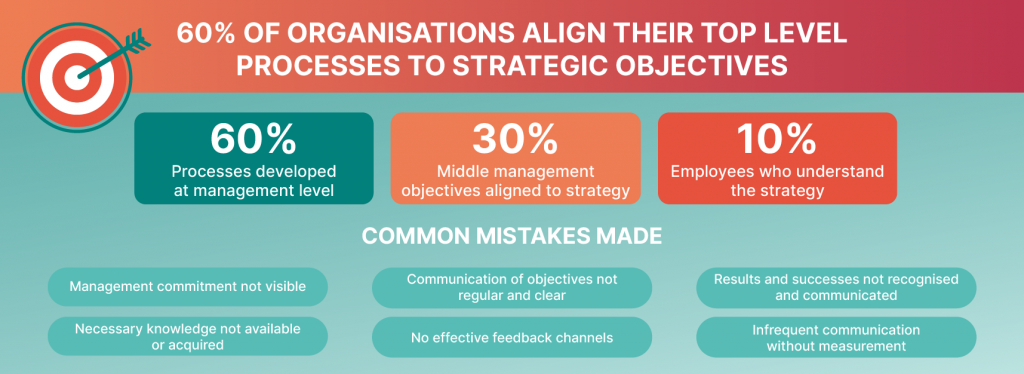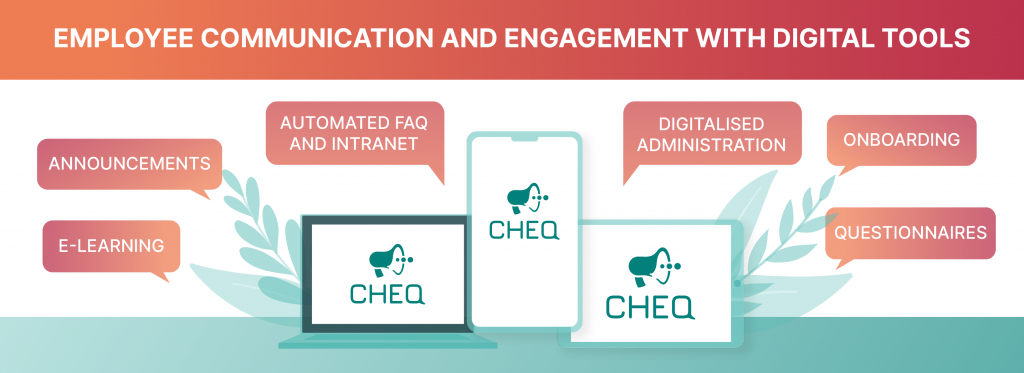Employee engagement: the only possible route to profit
Unsurprisingly, financial success is directly proportional to employee engagement at most large companies. However, employee engagement is largely dependent on the company’s internal communication. Only those colleagues become truly engaged employees with whom management communicates well, who receive the right amount of feedback, who are recognised for their work and who experience transparency in their work environment.
The absence or presence of engagement can contribute to the profitability of an organisation in ways that can be measured in quantitative terms. The results can be staggering when around 65-70% of employees in a company are disengaged, of whom 60% are already actively looking for work, and the remaining 40% who are not looking for work but are rather actively undermining performance in the company. It also greatly weakens a company’s performance when employees spend 25% of their working hours simply looking for the information they are missing. According to a Gallup survey, less than 30% of employees believe in the brand they work for every day.

McKinsey Global research shows an immediate 25% improvement in profitability for companies that implement an effective solution for information flow.
How do we move forward?
Naturally, defining and measuring engagement itself is no easy task. Engaged employees not only feel good at work but also have an intrinsic motivation to perform better. They can easily identify with and take ownership of the company’s goals. They are loyal to the organisation and speak positively about the company to others.

Of the many impacts of the epidemic, one of the most important ones had effects on the workplace. The role of remote working has increased and many companies maintain hybrid systems even after the pandemic has subsided. While more flexible working can have a positive impact on employee engagement, it also means that employees are starting to miss daily face-to-face contact, teamwork and even corridor gossip – after all, humans are social beings.
This is why lately the quality of internal communication is becoming increasingly important at large companies. After a flourishing career spanning some three decades, email’s popularity is on the wane. It is increasingly rare to keep in touch with anyone via e-mail when it comes to our private lives, so why would you want to do so in business? The engagement of an employee who works largely from home is certainly not helped by a round of emails from a manager. Moreover, email communication is virtually immeasurable. It is impossible to gather truly valuable, usable, statistically analysable data.
And communication is one of the most important factors in building employee engagement because to be effective, employees need to interact with each other, and this is impossible without effective communication.
Barriers to employee engagement
There are a number of other barriers to employee engagement, all of which are linked to a greater or lesser extent to internal communication within the company. Examples include:
- Lack of management support
- Lack of information
- Lack of feedback culture
- Toxic work environment
- Unnecessarily over-complicated, bureaucratic processes
- Work-life imbalance
- Poor management decisions
- Generational characteristics ignored
The list shows that not everything can be solved by more effective communication, but almost everything can be helped by it. In itself, it makes a big difference if employees feel the commitment of management, and here too, of course, it is good communication that can help bridge the gap between management and subordinates.
The ideal 21st century workplace simply cannot function effectively without 21st century digital communication solutions. These tools can help employees to become engaged in their work and in the workplace organisation And an engaged employee is not only happier but also more efficient and better at work, helping the workplace organisation, increasing efficiency and therefore profits. In addition, turnover is reduced and loyalty is increased.
Who wouldn’t want to work like that, whether as a manager or as a subordinate?



